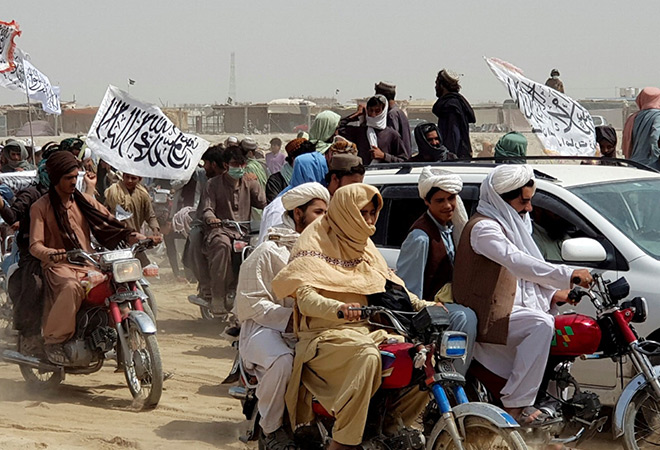
In early June 2022, a team led by JP Singh, a joint secretary who led the Pakistan -Fghan -Riran table at the Indian Ministry of Foreign Affairs, visited Kabul and met with senior ministers of the Taliban.
While India clarified that none of this recognition implies the Taliban government, the Taliban played the political significance of the visit.
New Delhi moved quickly to emphasize himself as a significant stakeholder in Afghanistan after the fall of the Ghani government. While India gives the impression that it is playing alone, it actually acts in close coordination with the United States based on a common interest.
Both countries try to stabilize the country, promote an inclusive government and deny space for militant groups. Special US representatives for Afghanistan Tom West held talks with Indian officials in May 2022, as well as with Abdullah Abdullah, former Afghan Executive Chief in New Delhi.
India has many reasons to foster a closer relationship with Afghanistan. Press releases accompanying Singh’s visit to talk about ‘Historical Bonds and Indian Civilization’ but his policies were encouraged mainly by concerns that Afghanistan managed by the Taliban would increase the geopolitical weight of Pakistan Pakistan
The Taliban itself is not seen as a threat to India, but its relationship with Pakistani and jihad groups such as Lashkar-e-Tayyiba and Jaish-e-Mohammad is worrying. Afghanistan is important for Indian continental economic aspirations, including closer relations with Central Asia and Iran. These objectives are currently hampered by the Pakistani Indian access blockade to the region.
The point is summarized with the title of Avinash Paliwal University of London Avinash Paliwal’s study of the Afghan Indian policy, ‘My enemy’. The Taliban may have a close relationship with Islamabad, but the historical relationship between Afghanistan and Pakistan is unfriendly – especially when they refute the durand line (Afghan border – Pakistan) and the status of ethnic Pashtun who live throughout Pakistan and Afghanistan. Indeed, the Taliban provides a shelter for the Anti-Pakistani Tehreek-e-E-Taliban Pakistan (Taliban Pakistani) group.
Pakistani relations -Taliban remain complicated. The Taliban government temporarily has a strong pro-Pakistani faction based on the Haqqani network, an Islamic militant organization established in the 1970s which is now operating as a prominent part of the Taliban. Instead of helping Pakistan control Pakistan Tehreek-e-Taliban, the Taliban works to achieve a long-term peace agreement to end their 14-year-old rebellion against Islamabad-agreement that will require significant concessions from Pakistan.
A stable tribal area on both sides of the durand line will reduce violence in both countries and prevent the rise of groups such as the Islamic State of Khorasan Province (ISIS-K) and Al Qaeda. But this will not alleviate India’s concern over the access of the Pakistani jihad group may have to go to Afghanistan. To achieve that, India will need an influence on the Taliban, while the relationship with New Delhi will give a regime in Kabul by balancing Pakistan.
In November 2021, Indian National Security Advisor Ajit Dooval became the host of the third regional security dialogue about Afghanistan in New Delhi. India clarifies that the goal is not to revive the alliance to overthrow the Taliban, but is trying to prevent the resurrection of clothing such as ISIS-K and Al Qaeda. The non-interference theme in Afghan’s internal affairs is repeated in the June 2022 talks.
India announced in February 2022 that they would provide 50,000 tons of wheat to Afghanistan for humanitarian assistance and that, in unusual concessions, Pakistan had allowed this shipment to travel to land through his territory. India has been a provider of the largest development assistance in the region to Afghanistan since 2001, after investing US $ 3 billion in infrastructure projects that stretched schools, roads.

